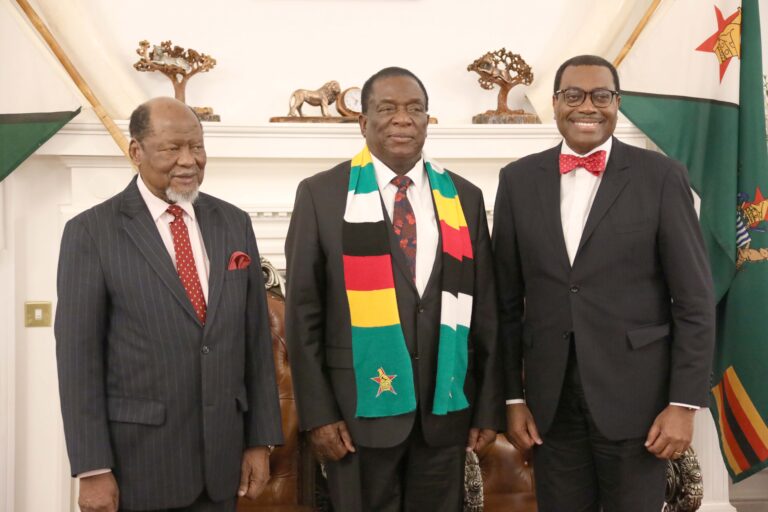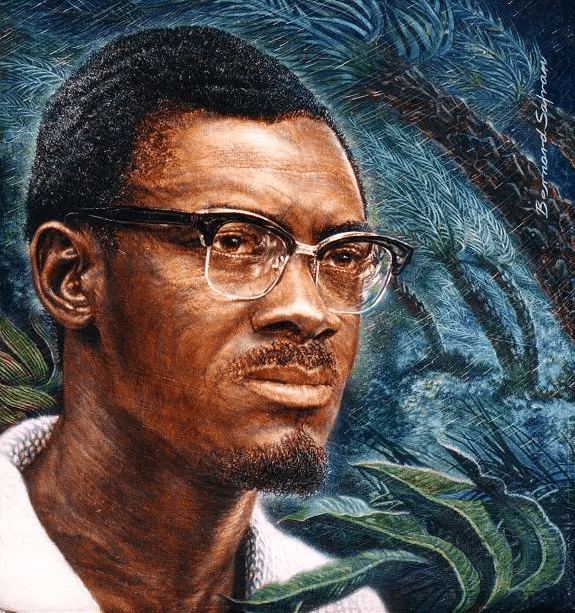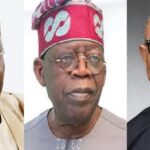The Western liberal consensus has long been intervening and interfering in Africa. The first form of intervention was through the slave trade from the 16th century, a mechanism that was used to reverse the trajectory of African history, followed by colonialism in the 19th and 20th centuries which led to the robbery of the continent’s resources and the displacement of its political and socio-economic organization.
However, for the years towards the end of the twentieth century, these two forms of intervention have been resurrected and today re-appear in the form of debt. The rhetoric of Africa being independent remains a mirage when the is encircled with the debt traps, an enticing formula that capitalism uses to lure Africans through its institutions, the International Monetary Fund (IMF) and the World Bank (WB).
The IMF and WB are instruments used by the United States to engage in a modern form of slavery by offering giant loans, especially to Global South nations. On the surface, this appears generous, yet the loans are intentionally too big; failure to repay means the entrapped country begins to abide by the political interests of the United States.
While Africa decries slavery, the U.S. through the IMF and WB, pulling the mechanics of a global empire, enslaves more people today than what the Romans and all other colonial powers did.
From the onset, the Bretton Woods financial institutions were created to capture, first, the post-World War II Europe under the pretext of rebuilding and reconstruction. Secondly, the period of decolonization in Africa from the 1960s, gave way for an independent Africa to support the U.S. in its gesture towards liberation movements that opposed mainly British rule in Africa. African countries were later inclined to support the United States’ financial plans through the IMF and WB, endearing themselves to an all-pervasive culture of aid dependency to which there is little or no real debate on the exit strategy from this debt web and quagmire.
In his magnum corpus, Confessions of An Economic Hitman, U.S. writer John Perkins summed it all saying when dealing with the United States and financial institutions of the neo-liberal consensus, “nations need to avoid debt at all costs if they want to remain free.”
The Sad Case Of Zimbabwe
In 2000, Zimbabwe embarked on a revolutionary agrarian reform exercise meant to address colonial imbalances, thus repudiating the International Law of Colonialism or the Doctrine of Discovery that European colonizers used to displace indigenous Zimbabweans from their territory on September 12, 1890.
For repudiating the Doctrine of Discovery which gave whites rights to access all land and property belonging to blacks without compensation, in 2001 Zimbabwe was sanctioned by the United States, and the European Union (EU) in 2002. The U.S., using the Zimbabwe Democracy and Economic Recovery Act (ZIDERA), directed the IMF and WB to block any loan meant for Zimbabwe, and that the African country repay the debt it owes its creditors.
The debt now stands at US$17.4 billion! The latest US$3.5 billion debt was assumed in July 2020, meant to compensate the white farmers who lost land during the 2000 agrarian reform, in particular for the developments they put on the agricultural land they had.
In search of avoiding the pariah state tag, Zimbabwe’s President Emmerson Mnangagwa has consistently approached the IMF and WB since 2018 as part of his administration’s re-engagement policy with the West with a debt clearance proposal of at least US$8 billion, in the meantime.
Zimbabwe’s President Mnangagwa appointed the African Development Bank (AfDB) president, Dr. Akinwumi Adesina and former Mozambique’s President Joachim Chissano as conveners of meetings with the IMF and WB.
Repentance Under Tough, Unforgiving Conditions
The debt debate about Zimbabwe has provoked reactions from African academics, intellectuals and interventions from politicians. Zimbabwe is expressing a willingness to settle the debt, but under tough conditions imposed by the IMF and WB. There are points of convergence, and similarly of divergence, on what has to be done.
“It is always important to talk about debt. You cannot turn a blind eye to it because it is a pertinent matter. More importantly, talking about debt means Zimbabwe will have clarity from its creditors on their expectations. Zimbabwe has been given conditions by the IMF, WB, and the Western countries, and they are tough and we as history informs, the Zimbabwean government cannot meet them,” Gift Mugano, a professor of economics at Durban University of Technology in South Africa told Ubuntu Times.
The conditions include that Zimbabwe liberalize its financial markets, institute currency reforms and electoral reforms, respect human rights, hold free, fair and credible elections on August 23 to entrench democracy, stop the harassment of political opponents, and implement the December 2018 Motlanthe Commission of Inquiry into the August 2018 post-election violence in which soldiers shot and killed six people.
“The Zimbabwean government is doing the opposite, meaning the holding of free and fair elections is not on the right footing. Reforms relating to financial markets liberation and the privatization of state-owned enterprises (SOEs) are going to fail because the government wants to embark on command economics.
“These IMF and WB conditions are just a reprint and duplication of the ZIDERA sanctions as the U.S. government confirmed. Zimbabwe is being reminded that it has to repent, yet the conditions are tough,” notes Prof. Mugano.
On the issue of political rights, Zimbabwe is deemed to be faltering as the deputy chairperson of the main opposition Citizens Coalition for Change (CCC) party, Job Sikhala, has been in pre-trial detention since June last year for inciting violence, while leader of the Transform Zimbabwe party, Jacob Ngarivhume, was sentenced to four years imprisonment in April for inciting violence on social media. Several other opposition members face various charges.
Suicide Is Not Martyrdom
Despite having tough conditions to re-engage with Western financial institutions, Zimbabwe’s pathway to compensate former white farmers in the region of US$3.5 billion is seen as “suicide”.
Some analysts accuse President Mnangagwa of pandering to the interests and agenda of Western neoliberals, unlike his predecessor (the late) President Robert Mugabe who was uncompromisingly strong on Pan-African and nationalist values.
“Where will Zimbabwe get the US$3.5 billion dollars? On that issue, the country committed suicide. In essence, it is now Zimbabwe saying ‘we are sorry for taking back our land’.
“Practically Zimbabwe will not win and the IMF, WB, and the West will even not do much. Other multilateral institutions will be given sanctions if they lend Zimbabwe money without America’s approval,” Prof. Mugano said.
Development economist Dr. Prosper Chitambara thinks the issue of compensation is unavoidable.
“I do not see a way out. Compensation is necessary to bring closure. Zimbabwe cannot avoid it, or run away from it,” Dr. Chitambara said.
What Needs To Be Done?
Many scenarios are up for consideration on how to deal with and address debts African countries owe to creditors, and some radical approaches have been thought of.
Speaking about debt, Burkina Faso’s Thomas Sankara, at a meeting of the then Organisation of African Unity (OAU) in May 1987 before his assassination five months later suggested that “We should even stop paying the debts and in any event, we deserve the reparations for slavery, colonization and if we (Africans) take a joint decision that we are not going to pay the debt, what will they do to us?”
Kenya’s Pan-African scholar and public intellectual Prof. Patrick Loch Otieno Lumumba describes Sankara’s approach as a “positive methodical madness.”
In an interview conducted on May 2023 ahead of the 60th-anniversary celebrations on the founding of the OAU and its transition to African Union (AU) in 2002 in Addis Ababa, Ethiopia, blamed the IMF and WB for being “economic enslavers whose agenda is to ensure Africa is in a perpetual state of debt because they want to ensure they control our economics, politics and us.”
“When the IMF and WB were created in the United States in New Hampshire in 1944, none of the African countries participated and it was the British and American economists who participated specifically to rebuild Europe, and Africa was only grafted into these organizations,” Prof. Lumumba said.
The Kenyan erudite said the AfDB was going to be an engine fit to determine Africa’s economic freedom, but remains African “only in name” as foreign countries and non-governmental organizations (NGOs) “have seized, captured and paralyzed the AfDB.”
“The AfDB is only African in name. Even on sanctions deployed in Zimbabwe, it cannot help because we do not have Pan-African institutions. One of the things I hope Africa could do is to rethink how as a continent we finance ourselves. The AU is now financed up to 70 percent by foreigners. As long as we are dependent on the IMF and the WB, our economies are simply going to be shadow economies of the Americans, Europeans, Chinese, and Russians. The time is now to wean ourselves from the breasts of the IMF and WB,” Prof. Lumumba added.
According to Dr. Chitambara, Zimbabwe will only deal with its debt after posting good growth results from investments in critical sectors.
He said: “Countries that have been able to deal with debt have been able to do so at the basis of a growth trajectory. To achieve that Zimbabwe needs to address things to do with infrastructure, energy, transport networks, and all critical enablers to unlock the potential of the economy.
“Zimbabwe can also leverage the rent from natural resources, meaning the government should impose revenue rents and that is a viable alternative to collect money that can be used towards debt pay-offs.”
Beware Of The Bad Samaritans
For long, Zimbabwe and other African countries have been kept in a pernicious cycle of poverty as a result of loans that were extended by the IMF and WB in the name of helping in economic transformation.
However, the conditions tied to these loans and unfortunately accepted by African countries, demand that Global South states reevaluate their positions on what they receive from Western financial institutions.
The best way to deal with the IMF and the WB is never to deal with them!


















